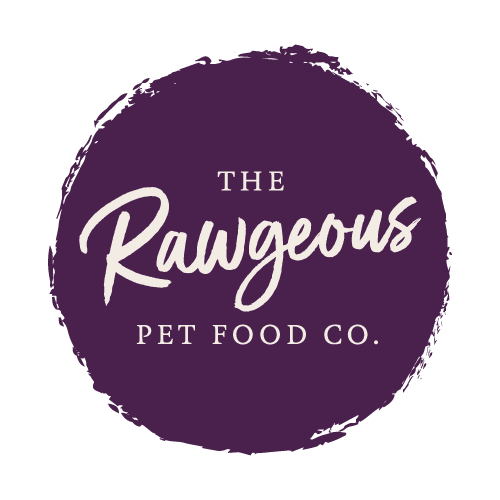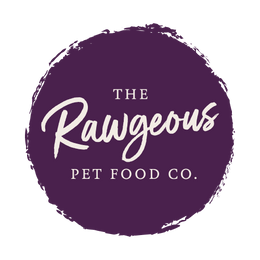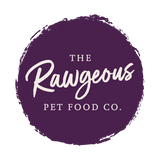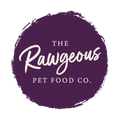'Hypoallergenic' explained
Hypoallergenic dog food
For one reason or another, some foods can cause your dog issues. These range from an acute bout of runny-bum or IBD, to fully-fledged allergic reactions every time a certain protein passes their lips!
If you’re one of the unlucky ones; you've been to the vet to discuss your dog's bad belly and they've stuck you on a ‘’hypoallergenic kibble’’ with an ingredients list that sends shivers down the spines of most canine nutritionists. Obviously, there are many more suitable options that will resolve your dog's issues in the short term and help them thrive in the long term.
What is hypoallergenic dog food?
The definition of hypoallergenic is ‘’relatively unlikely to cause an allergic reaction’’. In the dog food industry, this usually means a grain-free, novel single protein raw/cooked meal that isnt beef, chicken or lamb but it can also take on the form of prescription kibble that is hydrolysed (broken down so the body doesn't react to the proteins).
Using either of these foods gives an extremely low likelihood that your dog will be allergic or intolerant to any ingredients. As you can imagine, one option offers a life of happiness and itch-free joy and the other offers sad meal times and an empty wallet.
Don't be tricked by marketing.
It kills me to say that a lot of raw companies use unscrupulous marketing techniques to lure in customers and will call all of their food ‘’naturally hypoallergenic’’ whilst literally containing the most common food allergens for dogs. If your dog has an allergy or intolerance to beef then it doesn't matter if it's raw, lightly cooked, heavily processed or butchered by the Greek god Zeus; there are going to be issues.
Does my dog need hypoallergenic food?
It is used to resolve some of the following issues:
- Food allergies
- Food intolerances
- Excessive itching
- Dry skin
- Atopic dermatitis
- IBD
- Most gastrointestinal (GI) problems; diarrhoea, gas, vomiting.
Does my dog have an allergy or intolerance?
For the sake of finding a solution to your pup’s issues, it doesn't really matter. The main difference is how their body responds to the offending protein but resolving either issue and its corresponding symptoms follows a similar route.
Allergies will usually result in acute itching, scratching, red paws, runny nose and watery eyes but in rare cases can sometimes be life-threatening. Allergy symptoms can also be accompanied by stomach issues. Intolerances are usually identified due to their more chronic effect on the GI system and inflammation. However, both will result in chronic inflammation of the gut and if this isn't resolved then the symptoms will progressively get more intense. Do I need to tell the story of my Doberman painting by balcony again?
What food is best?
Choosing hypoallergenic food for your dog can be tricky. Some brands do ‘’venison completes’’ but have 10% beef offal in. Initially, we want to avoid beef, chicken or lamb as they are the most common food allergens for dogs.
Luckily, we’ve designed some truly hypoallergenic complete and balanced meals for you to choose from. You’ll need a novel protein source that you know your dog hasn't reacted to in the past. Our venison and duck meal is accompanied by our full range of single-protein meals. They're all grain-free and contain salmon oil to help reduce inflammation and support the immune system. Also, our food only contains natural ingredients with no additives or preservatives.
The elimination diet; simplified.
Once you’ve decided which brand and ingredients you’re going to try, you’ll need to feed that meal for around 8 weeks with no other proteins being offered. Remember, this also means that any treats you give will need to match the protein being fed in the food!
After 8 weeks your dog should be free of symptoms and you can either choose to continue feeding the hypoallergenic food or start to try ‘’challenge meals’’. This will mean choosing other single-protein options and giving a small amount to see if there is any reaction. If not, that protein is safe. Continue this for a full list of safe and unsafe protein choices!
What if it doesn't work?
Food allergies are pretty rare, but intolerances are a lot more common. However, sometimes the symptoms your dog is displaying can be from environmental allergies and this will need to be discussed with your vet so proper tests can be completed.
If hypoallergenic food will resolve the issues then choosing a raw complete and balanced, premium, hypoallergenic dog food will be your best bet.
The most important tip I could ever offer anyone dealing with these types of issues; is patience.



